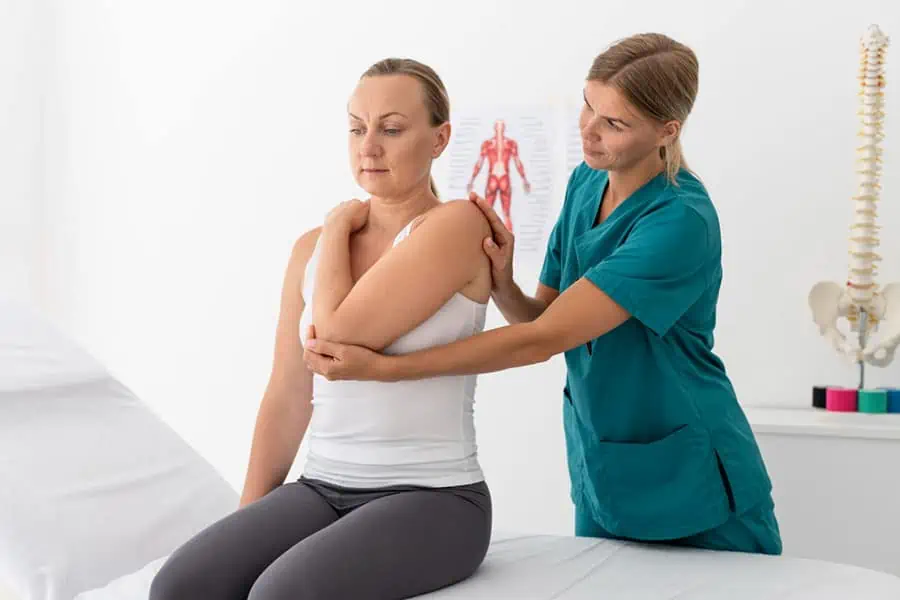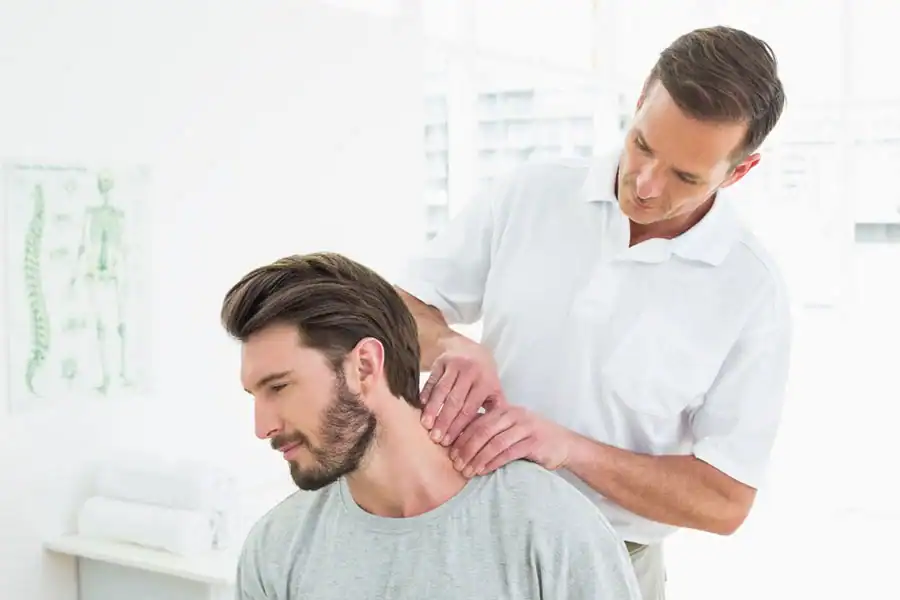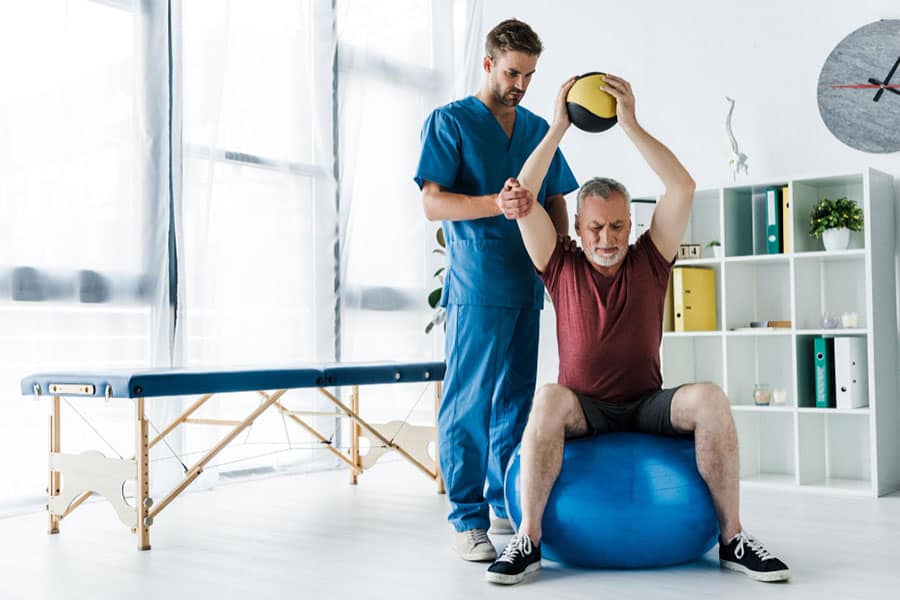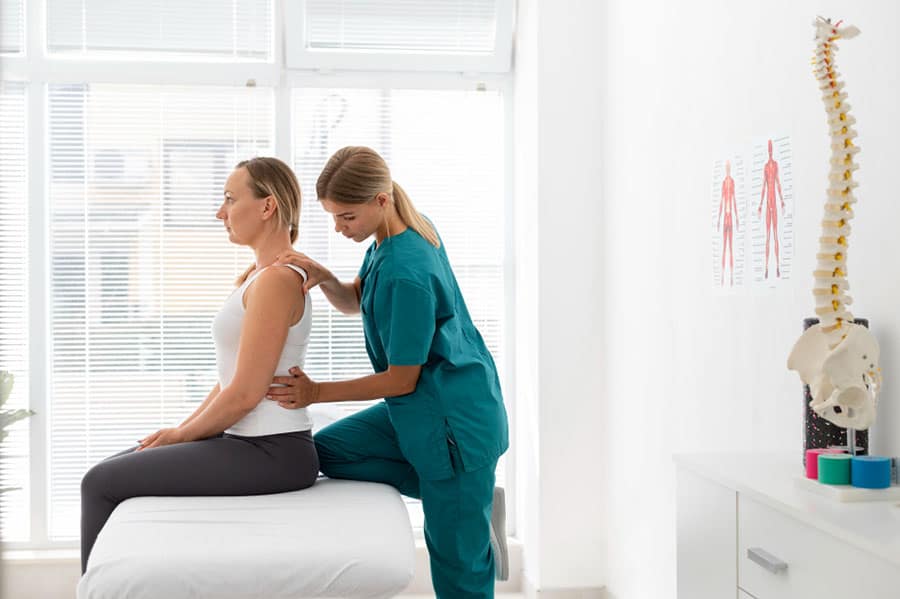Headache After a Car Accident in Tampa: Red Flags vs. Routine Pain and How Rehab Fits In
It’s common to have a headache after a car accident—but not all headaches mean the same thing. Some are a normal response to muscle tension or whiplash, while others may signal a more serious injury that needs urgent care.
If you’re unsure whether your symptoms are routine or risky, start by learning what happens to your body after a collision. A sudden impact can strain the neck, irritate nerves, and cause inflammation that can lead to persistent head pain. These symptoms often improve with time and proper rehabilitation, once emergency conditions have been ruled out.
At The Right Spinal Clinic’s Auto Accident Doctor in Tampa, our medical team helps patients safely transition from the emergency phase into recovery. You can also visit our Car Accident Clinic in Tampa, FL for a complete post-injury evaluation.
Understanding Post-Accident Headaches
Here’s a quick comparison between common, temporary headaches and those that require emergency care:
| Routine Pain (Often Resolves Naturally) | Red Flags (Seek Emergency Care) |
|---|---|
| Mild soreness or pressure in the temples or neck | Sudden, severe, or worsening headache |
| Pain that eases with rest or ice | Headache with vomiting or confusion |
| Stiffness from muscle strain or whiplash | Vision changes, dizziness, or loss of consciousness |
| Tenderness around the shoulders or jaw | Weakness, numbness, or slurred speech |
When to Go to the ER for a Headache After a Car Accident
If your headache comes on suddenly or worsens quickly—especially if you notice confusion, vomiting, blurred vision, or dizziness—go to the emergency room immediately. These symptoms may indicate a concussion or another serious injury.
The Right Spinal Clinic does not handle emergencies; always see a physician first. Once you’ve been cleared, our Physical Therapy in Tampa team can help address muscle tension and alignment issues that cause lingering headaches.
For insight into recovery timelines, see How Long Does Whiplash Last After a Car Accident.
What Causes Headaches After a Car Accident (When It’s Not an Emergency)
When serious injuries are ruled out, most post-accident headaches stem from neck strain, nerve irritation, or muscle tightness. The sudden jolt of a collision can pull the muscles at the base of the skull or compress cervical nerves, creating pain that radiates upward.
Florida’s humidity and heat can worsen inflammation and muscle stiffness after a car accident. Many Tampa patients notice their symptoms flare up when barometric pressure changes, which is common during storm season. Our rehab programs account for these local environmental triggers to help manage recurring pain.
Our Car Accident Chiropractor in Tampa uses precise chiropractic adjustments and guided Manual Therapy techniques to restore healthy motion and relieve pressure once you’ve been cleared for care.
How Long Do Headaches Last After a Car Accident?
For most patients, tension-type headaches fade within a week or two as swelling decreases and muscles relax. If pain lasts longer—or intensifies—it could be a sign of lingering inflammation or nerve irritation that needs professional attention.
Consistent therapy sessions at our Physical Therapy clinic in Tampa help improve mobility, reduce inflammation, and prevent recurring pain. For details on recovery timelines, read How Long Should I Go to Physical Therapy After a Car Accident.
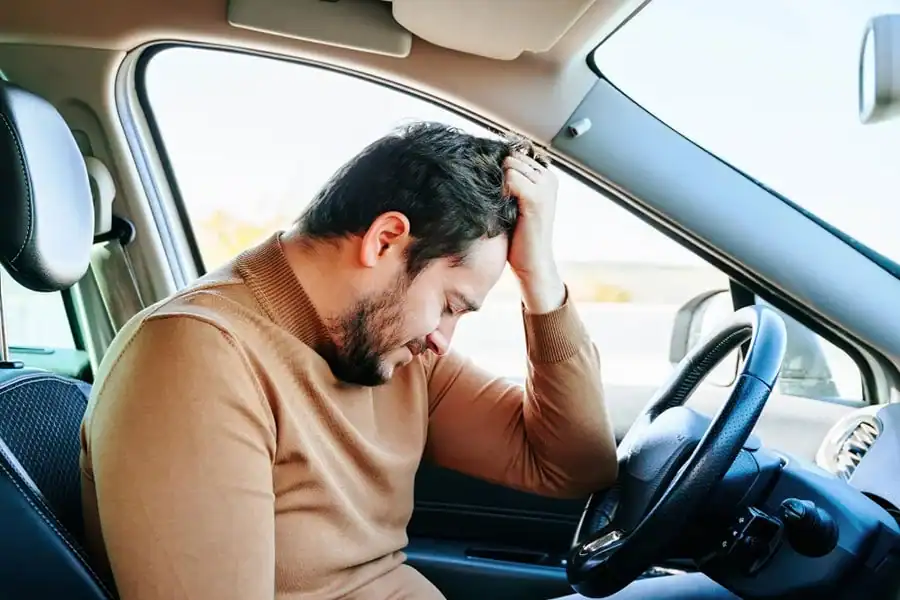
When Rehab and Chiropractic Care Can Help
| Treatment | Goal | Typical Benefit |
|---|---|---|
| Chiropractic Adjustments | Restore spinal alignment | Reduce nerve irritation & tension |
| Physical Therapy | Strengthen neck & shoulder muscles | Improve posture and circulation |
| Manual Therapy | Relieve muscle tightness | Enhance mobility and comfort |
Each treatment plan at The Right Spinal Clinic is customized to your injury, comfort level, and recovery goals.
Once your physician confirms that no emergency conditions exist, rehabilitation becomes the key to lasting recovery. Chiropractic adjustments help realign the spine, while physical therapy strengthens supportive muscles to reduce strain.
Physical therapy helps support blood flow and nerve recovery after an impact. Chiropractic adjustments help restore cervical curve and balance the musculoskeletal system. Together, they address both pain and underlying mechanical causes of post-accident headaches.
Callout
“Even mild neck strain can cause nerve irritation that lingers for weeks,” explains Dr. Tashman. “Chiropractic adjustments and physical therapy reduce that pressure and help prevent chronic pain.”
The Right Spinal Clinic combines Headaches and Chiropractic treatment with Physical Therapy for Neck and Shoulder Pain in Tampa to relieve pressure on the nerves that commonly cause post-accident headaches.
Safe Self-Care Tips While You Recover
Support recovery at home with safe, low-risk habits approved by your provider:
- Stay hydrated and maintain good posture.
- Use ice for soreness during the first 48 hours, then gentle heat.
- Avoid overusing pain medication or self-adjusting your neck.
- Begin light stretching only when cleared by your provider.
For more ways to heal safely, see our guide on the Benefits of Chiropractic After Whiplash.
FAQ: Headaches After Car Accidents
How do I know if my headache is from whiplash or concussion?
Whiplash headaches usually start at the base of the skull and cause neck stiffness or muscle tension. Concussion headaches often involve dizziness, nausea, or sensitivity to light. If you’re unsure, get a medical evaluation before starting rehab. Learn more in The Importance of Rehabilitation After a Car Accident.
Can neck pain cause headaches after a car accident?
Yes. Tight neck muscles and irritated nerves can cause cervicogenic headaches, where pain radiates from the neck into the head. Chiropractic and physical therapy relieve that tension safely—see how on our Car Accident Chiropractor in Tampa page.
How long should I wait before seeing a chiropractor?
Once cleared by a physician, you can begin gentle chiropractic care within days. Early treatment reduces muscle tension and speeds healing.
What if my headaches get worse weeks later?
If your headaches intensify weeks after a crash, it could signal nerve irritation or unresolved soft-tissue damage. Schedule a re-evaluation and learn more in Nerve Damage After a Car Accident.
Get Help for Post-Accident Headaches at The Right Spinal Clinic
If headaches haven’t improved since your accident, The Right Spinal Clinic’s Tampa team can help relieve tension, restore mobility, and support a full recovery—once emergency conditions have been ruled out.
📍 4019 W Waters Ave Ste E, Tampa, FL 33614
You can also explore more recovery options at our Car Accident Clinic in Tampa, FL.
Medically Reviewed by The Right Spinal Clinic Team
The Right Spinal Clinic in Tampa, FL offers chiropractic care, physical therapy, and rehabilitation services from a licensed medical team with decades of combined experience. Our clinic helps patients recover from injuries, manage pain, and improve mobility through personalized, evidence-based treatments.
